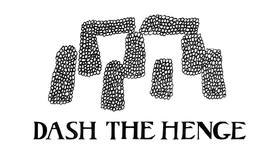
OKONKOLO
CANTOS
In a world where chaos seems to be in control more often than not, music can occasionally be a temporary respite; and at best, a form of salvation.
This is the transcendent realm of Okonkolo: Yoruban Santeria music like you have never heard before. Okonkolo transports listeners to another realm; a spiritual dance with gods beyond our grasp, held together by rhythm, passion and musical virtuosity.
The group is the life’s work of New York-born percussionist and Yoruba Chango priest Abraham “Aby” Rodriguez. His group quietly released Rezos, a gorgeous 10-Inch EP in 2016 on Brooklyn’s Big Crown, and has now returned to give the world even more hypnotic incantations on their debut full length.
Featuring nine songs, each of the group’s religious epiphanies on Cantos follow a similar path, with transcendently hypnotic results. As with all Santeria ritual musical accompaniment, drums are at the center of all offerings – namely, the Bata and Coro. In Okonkolo, they are played by Rodriguez, Gene Golden and Xavier Rivera. Building on these rhythms, vocals play an equally important role in the proceedings, sung in Yoruba, contributed by Aby and the powerful female voices of Amma McKen and Jadele McPherson.
Although not necessarily musically comparable, conceptually Cantos clearly reminds listeners of artists and albums that effortlessly straddle the line between the sacred and the secularly sublime: Nusrat Fateh Ali Khan’s finest work; Ravi Shankar; Alice Coltrane’s Journey In Satchidananda; and many more classics released over the past half century. These are albums cherished by fans, which go far deeper than mere entertainment.
Along the Cantos journey, strains of music from around the world can be heard – Africa, South America, the Caribbean and even New York City. Beyond the drums and vocals featured at any traditional Yoruba / Santeria ceremony, with this album there are additional layers that add to the musical beauty: overlaid on top of traditional elements are jazz-associated instrumentation, including horns, bass, guitar and even lush string arrangements. These additional sounds were created by guitarist and producer Jacob Plasse, who first heard and performed with the group more than a decade ago, and who brought the project to the Big Crown label.
While Santeria / Yoruban spiritual music is generally associated with Cuba in this hemisphere (and also Bahia, in Brazil), Rodriguez does not fit the traditional pedigree. “I’m an American,” he proudly admits, with a smile. “A Puerto Rican from New York. The Cubans I know always ask, ‘How can you play this?’ And I tell them, ‘Don’t ask me, ask God.”
The Santeria religion endured the transatlantic slave trade from Africa to the solares of Cuba and arrived in New York City by way of Caribbean migrants who sought a better life in the barrios of the Bronx and Brooklyn. And New York is where Aby Rodriguez first came in contact with Plasse. “We met in the early ‘90s, doing salsa gigs over at Plan B in the Lower East Side,” Plasse recalls. “After I had played there a couple times, Aby told me I should come later the next week, because the first part of the show was going to be different. Needless to say, I came early to see what I wasn’t being included in!”
He continues, “Abraham was doing a tambor for Chango. I had never seen anything like it. In Cuba, I had gone to some amazing tambors, but somehow what Aby was doing was different – it was the bata repertoire but with his own subtle New York doowop thing happening. And in a salsa club no less! It was beautiful and unique, and I wanted to figure out a way to collaborate, even if I had to wait more than 10 years to do it.”
On Cantos there are multiple examples of how this musical hybrid can move listeners. Take “Yemaya,” where plucked guitars break down into dissonant sul pont violin textures. As the batá drums build in intensity the arrangement culminates in guitars and descending clarinet arpeggios, Nick Movshon's propulsive bass brings the piece to a climactic finale. Or “Canto Asoyin” where an imagined Santeria / Stax session gives way to a gutbucket guitar refrain, before transitioning to a high-life section where ancient and modern Nigerian musical traditions wink slyly at each other.
“Ochun” is sung first by Abraham and then by Amma McKen, and each version is quietly startling. Amma's begins with ominous piano chords that lead to plucked cellos and violins in counterpoint against a soca guitar riff, preceding a descrescendo into baritone sax and viola tremolos. As Amma explains, “Through the song, there is possession. We are the vehicles through which all of this positive energy flows. It’s a language, and it’s very sacred.” And then there is “Obatala,” which has a sublime breakdown where pizzicato violins, violas and cellos mimic the different drums of the batá ensemble.
Many listeners will barely register these mercurial arrangements and their admittedly strange juxtapositions against Orisha music. Only upon closer inspection does one become aware of how these ancient songs are being shifted and reimagined, and how they linger ethereally between worlds, just like the orishas.

